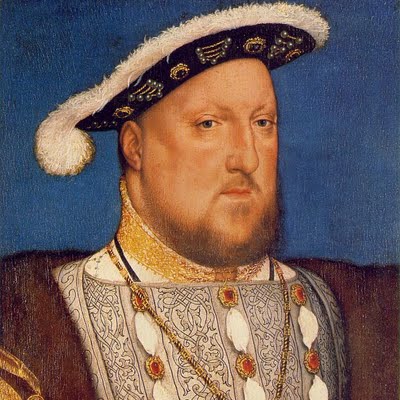The establishment of the Church of England is indelibly tied to the reign of King Henry VIII, a figure whose personality and actions have captivated historians and theologians alike. While many perceive him as the singular architect behind this monumental ecclesiastical shift, the reality is far more nuanced. The inception of the Anglican Church was not merely the product of one man’s whims; rather, it was an intricate mosaic composed of personal desires, political exigencies, and deep-rooted theological currents. To fully comprehend the layers beneath this historical transformation, one must explore both the context of the period and the myriad of forces at play.
At the outset, it is vital to consider the socio-political milieu of early 16th-century England. Henry VIII ascended to the throne in 1509, inheriting a kingdom rife with religious fervor yet internally divided among various factions. The Catholic Church, under the Papacy, retained substantial authority, yet a growing undercurrent of reformist sentiment began to take root. Figures like Martin Luther were daring to question long-held doctrines, igniting what would become the Protestant Reformation. England was not exempt from these ideological contests; calls for reform echoed in the halls of British nobility and among the laity, setting the stage for pivotal change.
However, the catalysts for Henry’s break with Rome were profoundly personal. The king’s fervent desire for a male heir became his obsession, driven by his belief that only a son could secure the Tudor dynasty. His marriage to Catherine of Aragon, while initially celebrated, produced only one surviving daughter, Mary. As the years progressed, the specter of dynastic instability loomed ominously over his reign. Frustrated by the perceived impotence of his marriage, Henry sought annulment on the grounds that his union with Catherine was illegitimate. His request was ultimately refused by Pope Clement VII, entangled in political machinations and the pressure from Catherine’s nephew, Holy Roman Emperor Charles V.
This refusal became the linchpin of Henry’s decision to sever ties with the Roman Catholic Church. It was not merely a matter of personal gratification; it was a calculated political maneuver masked as a religious reform. In 1534, the Act of Supremacy declared Henry the “Supreme Head” of the Church of England, affirming his authority as both king and, significantly, as the highest ecclesiastical figure. Thus, the formation of the Church of England was as much a manifestation of royal desperation as it was a theological assertion.
This transformative schism dramatically revised the ecclesiastical landscape of England. The Church of England adopted many Catholic rituals and traditions while simultaneously introducing reforms that aligned more closely with certain Protestant principles. The English Bible, championed by figures such as William Tyndale, began to permeate the populace, making scripture accessible to laypersons and challenging the clerical monopoly on biblical interpretation. The translation of the Bible into English can be seen as a defining moment in this divergence, empowering individuals to engage directly with faith.
Yet, to posit that Henry VIII alone was responsible for the Church of England overlooks the contributions of key figures who influenced and shaped this new religious entity. Advisors such as Thomas Cromwell and Thomas Cranmer played instrumental roles in fostering the theological and administrative frameworks that would underpin Anglicanism. Cromwell, particularly, was a shrewd political operator who understood the delicate balance between tradition and innovation. His efforts to dissolve the monasteries not only served Henry’s financial interests but also redistributed wealth and power, altering the socio-economic fabric of England.
Moreover, Cranmer, appointed the Archbishop of Canterbury, became the architect of the Book of Common Prayer and the Thirty-Nine Articles, laying the foundations for Anglican doctrine. His commitment to reform propelled the Church of England toward a distinct identity that resonated with the emerging Protestant ethos. These figures, among others, illustrate that the movement was collective rather than isolated; a tapestry woven by many hands.
Moreover, it is important to examine the role of broader social dynamics and popular sentiment. The populace of England, influenced by the Reformation, began to engage actively with religious matters. Discontent with papal authority and corruption within the church fueled a drive for reform that resonated outside the corridors of power. The English Reformation was a convergence of political motives, theological debates, and popular demand, signifying a decisive moment in England’s religious history.
In contemplating the issue of Henry’s solitude in founding the Church of England, one must consider the underlying theological implications that emerged from this ecclesiastical shift. The reformation of the church was as much a symbolic rejection of foreign authority as it was a renewed emphasis on the sovereignty of Christ and scripture. This theological pivot laid the groundwork for what would eventually evolve into a distinctive Anglican identity, characterized by a middle way between Catholicism and Protestantism. As such, the Church of England’s emergence can be viewed not merely as a political maneuver, but as a complex response to the ancillary questions of faith, authority, and identity.
In conclusion, while King Henry VIII undoubtedly played a pivotal role in the establishment of the Church of England, he did not do so in isolation. The phenomenon was a confluence of personal ambition, political necessity, and emerging theological currents that involved a multitude of actors and societal forces. As one reflects on the genesis of this enduring religious institution, it becomes evident that history is seldom the product of a singular actor. Rather, it is a rich tapestry woven from the myriad threads of human experience, belief, and aspiration. In analyzing these intricate dynamics, we unearth not only the complexity of the English Reformation but also the enduring questions of faith and governance that resonate to this day.



